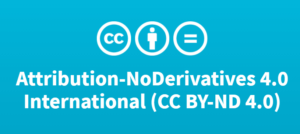
Imperial Brands has a clear commitment to transforming our business to increasingly focus on offering a range of innovative next generation product (NGP) alternatives to cigarettes.
As a scientist, I’m confident in stating that the weight of evidence – including our own studies – suggests the considerable tobacco harm reduction (THR) potential of high quality NGP relative to continuing to smoke.
However, innovating, manufacturing, and scientifically substantiating NGP are just three ingredients in the recipe for improved global public health.
Focusing upon the composition of various tobacco and NGP markets, it’s clear that any resulting impacts on public health are fundamentally shaped by another crucial ingredient: supportive regulatory environments.
To achieve better public health outcomes, legislation and regulation need to be largely THR-driven. The THR equation provides a consumer-centric framework to help begin shaping a positive framework for NGP regulation.

Regulations that consider and support all the above elements undoubtedly maximise the positive public health impact.
These include:
Adding extra layers of detail – i.e. how switching rates can also be positively impacted by competitive NGP pricing vs cigarettes, or through more relaxed marketing environments which allow manufacturers to better advocate about potentially harm reduced NGP to adult smokers without having to, for instance, obtain medical licenses – continues to enhance the THR potential.
Unsurprisingly, it’s essentially the opposite of all the above.
Naïve regulation often incorrectly considers THR as a threat to traditional tobacco control measures, rather than embracing its potential as a complementary regulatory measure.
The results of following emotion rather than science include:
It’s also unhelpful that there’s no established, aligned industry-wide vocabulary around NGP and THR to prevent further misunderstandings.
Another consequence of ineffective regulation is that regulators implement ever tougher, more restrictive legislation – like the forthcoming review of the European Tobacco Product Directive – to try and rectify their previous efforts, rather than giving that original regulation the opportunity to at least be somewhat effective through strong enforcement.
With regards to excise, it’s crucial regulators don’t see categories as merely ‘revenue raisers’ to compensate for decreasing returns on traditional tobacco taxation revenues. Rather, excise should be a means to add/leverage a degree of control and scrutiny to categories that are scientifically acknowledged as not being risk-free, or accessible to unintended audiences.
Finally, misguided NGP regulation has all kinds of broader negative economic and societal impacts, from poorer overall public health (and the ensuing increased strain on health services) to potential falls in governmental revenue through poorly thought-out taxation, increasing crime rates owing to rises in the illicit tobacco and NGP trade, plus surges in unintended users like youth owing to weak enforcement.
Nobody wants these scenarios to come to pass.
It’s clear that offering NGP with the potential to help facilitate THR comes with a serious societal responsibility. But does any regulatory framework currently exist that creates a truly level playing field for responsible NGP manufacturers?
For instance, Imperial Brands is proud to be a responsible manufacturer. We have an extremely robust set of internal standards, including our scientific assessment framework and global marketing standards, to help safeguard our consumers. We also monitor compliance and continue to lobby regulators for stronger enforcement of category-specific regulations.

Yet it often feels like some other manufacturers don’t apply the same high standards. This has resulted in enduring compliance issues, ever-increasing rises in illicit product, plus disruptive issues with youth vaping even in more mature NGP markets like the UK, France, and Germany – let alone immature ones.
Compliance – or rather non-compliance – is a particularly concerning, and growing, issue when it comes to NGP. Are appropriate product standards and responsible retailing being enforced strictly enough, even in traditionally pro-THR countries?
I’d argue that in most cases, they’re not – and this is bad news for public health, consumers, and the broader reputation of NGP.
Imperial Brands’ belief is that building positive relationships between industry and regulators is the right direction of travel.
Encouraging, high-profile regulatory authorities like the US FDA are increasingly sending delegates to congresses like CORESTA and conferences like GTNF and Next Generation Nicotine Delivery USA, which is encouraging.
Furthermore, in some countries like the UK industry research – including our own – is now being used to inform positive regulation through the likes of the Science, Innovation, and Technology Committee and Cochrane academic reviews.
I believe the continuing evolution of NGP science, like our new in-market actual use behavioural studies, will only accelerate this exciting trend.
If industry is finally gaining more trust in the eyes of regulators – albeit slowly – we must not let this opportunity slip.
This means manufacturers must strive to continue to act with integrity when it comes to product design, transparent science, and responsible marketing.
The prize is potentially healthier futures for a billion-plus adult smokers and a truly meaningful contribution to global public health.
Watch the full panel discussion – ‘Legislation and regulation: health and economic consequences’ – on GFN.tv. You can also hear more from Joe as he champions the often understated role of adult smoker consumers themselves in driving THR in this interview.
Follow us on LinkedIn and read more about our intentions to help create potentially healthier futures for our consumers on our corporate website. You are free to share this content with credit to Imperial Brands under a Creative Commons Attribution-NoDerivatives 4.0 International (CC BY-ND 4.0) license.
